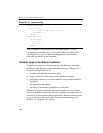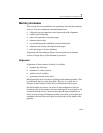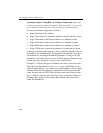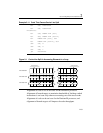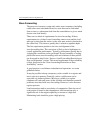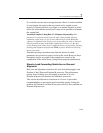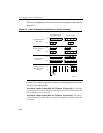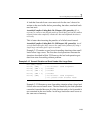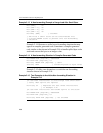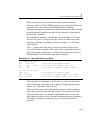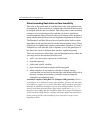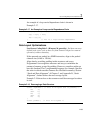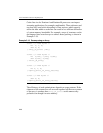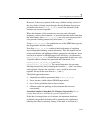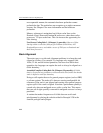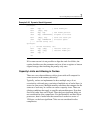
IA-32 Intel® Architecture Optimization
2-36
Example 2-14 illustrates a stalled store-forwarding situation that may
appear in compiler generated code. Sometimes a compiler generates
code similar to that shown in Example 2-14 to handle spilled byte to the
stack and convert the byte to an integer value.
Example 2-15 offers two alternatives to avoid the non-forwarding
situation shown in Example 2-14.
Example 2-13 A Non-forwarding Example of Large Load After Small Store
mov [EBP], ‘a’
mov [EBP + 1], ‘b’
mov [EBP + 2], ‘c’
mov [EBP + 3], ‘d’
mov EAX, [EBP] ; blocked
; The first 4 small store can be consolidated into
; a single DWORD store to prevent this non-forwarding
; situation
Example 2-14 A Non-forwarding Situation in Compiler Generated Code
mov DWORD PTR [esp+10h], 00000000h
mov BYTE PTR [esp+10h], bl
mov eax, DWORD PTR [esp+10h] ; Stall
and eax, 0xff ; converting back to byte value
Example 2-15 Two Examples to Avoid the Non-forwarding Situation in
Example 2-14
;A. Use movz instruction to avoid large load after small
; store, when spills are ignored
movz eax, bl ; Replaces the last three instructions
; in Example 2-12
;B. Use movz instruction and handle spills to the stack
mov DWORD PTR [esp+10h], 00000000h
mov BYTE PTR [esp+10h], bl
movz eax, BYTE PTR [esp+10h] ; not blocked



